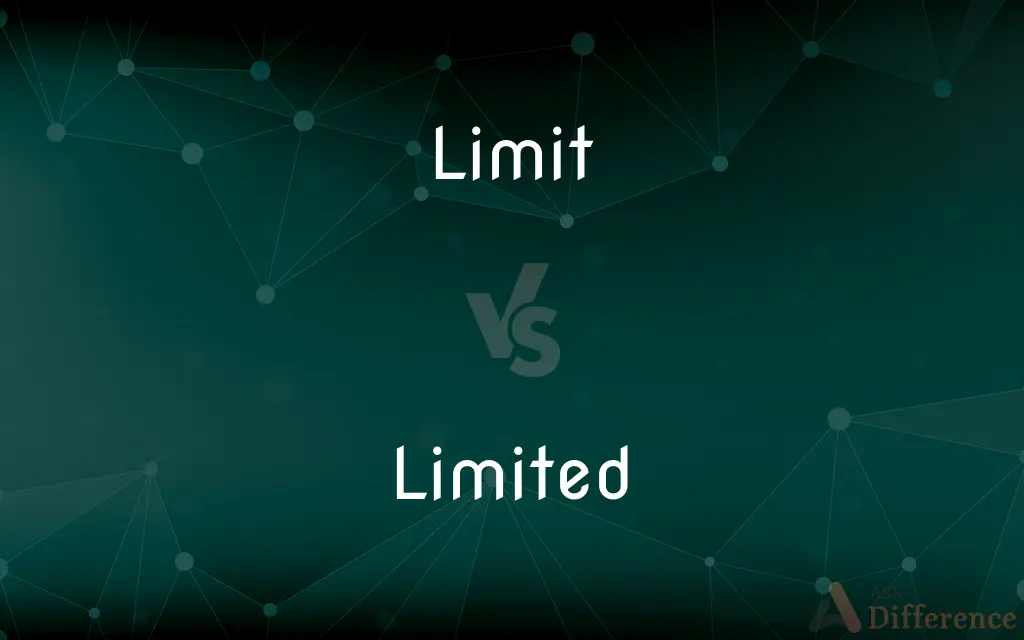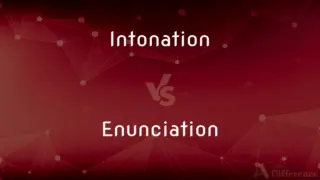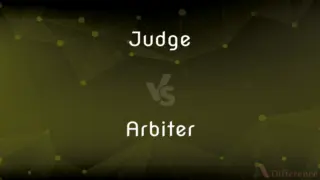Limit vs. Limited — What's the Difference?
By Maham Liaqat & Fiza Rafique — Updated on April 4, 2024
"Limit" refers to a boundary or extent, defining the maximum capacity or extent of something. "Limited" describes a state of being restricted or confined within certain boundaries.

Difference Between Limit and Limited
Table of Contents
ADVERTISEMENT
Key Differences
"Limit" functions primarily as a noun or verb, indicating a point beyond which something does not or cannot extend or occur. As a noun, it refers to the maximum or minimum boundary; as a verb, it describes the action of setting these boundaries. On the other hand, "limited" is an adjective that characterizes something as confined within limits or restricted in size, amount, or extent. It implies that something is not unlimited or boundless, often leading to a need for careful management or consideration of resources.
The concept of a limit is foundational in various fields, serving as a cornerstone in disciplines such as mathematics, physics, and economics. It defines the boundaries within which systems operate or the extent to which elements can vary. Conversely, being "limited" often carries a connotation of scarcity or constraint, highlighting a condition where possibilities are restricted. This distinction is crucial in understanding and communicating the capabilities, potential, or restrictions of different entities or concepts.
While limits are essential for establishing clear definitions and parameters, the state of being limited can prompt innovation as individuals and organizations strive to overcome or expand these constraints. Thus, the dynamic between limit and limitation is a driving force behind problem-solving and creativity. Recognizing and respecting limits can lead to sustainable practices and balanced growth, whereas understanding the implications of limitations can inspire efforts to push beyond current boundaries or find novel solutions within them.
The relationship between "limit" and "limited" reflects a nuanced understanding of constraints and potential. By defining limits, one can better navigate the complexities of various endeavors or fields of study. At the same time, acknowledging that something is limited encourages a strategic approach to resource allocation, innovation, and exploration within defined parameters.
Comparison Chart
Part of Speech
Noun, Verb
Adjective
ADVERTISEMENT
Definition
A boundary or extent that defines the maximum capacity.
Describes a state or condition of being restricted.
Application
Used to establish parameters or boundaries.
Used to describe the nature or state of something as not boundless.
Connotation
Neutral; implies a threshold or benchmark.
Often implies scarcity or restriction needing management.
Examples in Context
"The speed limit is 55 mph." (Noun) "We need to limit our expenses." (Verb)
"Resources are limited." "Limited edition product."
Compare with Definitions
Limit
A boundary that defines the extent of something.
The park has a limit on the number of visitors allowed daily.
Limited
Restricted in size, amount, or extent.
We have a limited amount of time to finish this.
Limit
The maximum or minimum value that a function, sequence, etc., approaches.
In calculus, we study how functions behave as they approach a limit.
Limited
Not abundant or plentiful.
The company has limited resources for new projects.
Limit
To set or serve as a limit.
The budget will limit our options for the project.
Limited
Confined within limits; having boundaries.
The garden is limited to members only.
Limit
A restriction on the size or amount of something.
There’s a limit to how much you can fit in your suitcase.
Limited
A specific edition or version with restricted availability.
I bought a limited edition of the game.
Limit
A point or level beyond which something does not or may not extend or pass.
Patience has its limits.
Limited
Having limited capability or function.
The software offers limited features in the free version.
Limit
The point, edge, or line beyond which something ends, may not go, or is not allowed
The 12-mile fishing limit.
The limit of my patience.
Limited
Confined or restricted within certain limits
Has only limited experience.
Limit
Limits The boundary surrounding a specific area; bounds
Within the city limits.
Limited
Not attaining the highest goals or achievement
A limited success.
Limit
Something that restricts or restrains; a restraint
The child needs to have limits put on his behavior.
Limited
Having only mediocre talent or range of ability
A popular but limited actor.
Limit
The greatest or least amount, number, or extent allowed or possible
A withdrawal limit of $200.
No minimum age limit.
Limited
Having governmental or ruling powers restricted by enforceable limitations, as a constitution or a legislative body
Limited monarchy.
Limit
(Games) The largest amount which may be bet at one time in games of chance.
Limited
Abbr. Ltd. Of or relating to a limited company.
Limit
A number or point L that is approached by a function f(x) as x approaches a if, for every positive number ε, there exists a number δ such that |f(x)-L| < ε if |x-a| < δ.
Limited
Of, relating to, or being transportation facilities, such as trains or buses, that make few stops and carry relatively few passengers.
Limit
A number or point L that is approached by a sequence bn if, for every positive number ε, there exists a number N such that |bn-L| < ε if n > N. Also called limit point.
Limited
A limited train or bus.
Limit
(Informal) One that is intolerable, remarkable, or extreme in some other way
"That's the limit!" the babysitter exclaimed after the child spilled a glass of milk.
Limited
Simple past tense and past participle of limit
Limit
To confine or restrict with a limit
Let's limit the discussion to what is doable. The offer limits us to three for a dollar.
Limited
With certain (often specified) limits placed upon it.
Limit
A restriction; a bound beyond which one may not go.
There are several existing limits to executive power.
Two drinks is my limit tonight.
Limited
Restricted, small, few, not plentiful.
There are limited places available. Enrol now or you will miss out.
I have a limited understanding of quantum physics.
Limit
(mathematics) A value to which a sequence converges. Equivalently, the common value of the upper limit and the lower limit of a sequence: if the upper and lower limits are different, then the sequence has no limit (i.e., does not converge).
The sequence of reciprocals has zero as its limit.
Limited
(rail) An express train that only halts at a limited number of stops.
Limit
(mathematics) Any of several abstractions of this concept of limit.
Category theory defines a very general concept of limit.
Limited
Confined within limits; narrow; circumscribed; restricted; as, our views of nature are very limited.
Limit
(category theory) The cone of a diagram through which any other cone of that same diagram can factor uniquely.
Limited
Small in range or scope;
Limited war
A limited success
A limited circle of friends
Limit
(poker) Fixed limit.
Limited
Subject to limits or subjected to limits
Limit
The final, utmost, or furthest point; the border or edge.
The limit of a walk, of a town, or of a country
Limited
Including only a part
Limit
(obsolete) The space or thing defined by limits.
Limited
Mediocre
Limit
(obsolete) That which terminates a period of time; hence, the period itself; the full time or extent.
Limited
Not excessive
Limit
(obsolete) A restriction; a check or curb; a hindrance.
Limited
Having a specific function or scope;
A special (or specific) role in the mission
Limit
A determining feature; a distinguishing characteristic.
Limited
Not unlimited;
A limited list of choices
Limit
(cycling) The first group of riders to depart in a handicap race.
Limit
A person who is exasperating, intolerable, astounding, etc.
Limit
(poker) Being a fixed limit game.
Limit
(transitive) To restrict; not to allow to go beyond a certain bound, to set boundaries.
We need to limit the power of the executive.
I'm limiting myself to two drinks tonight.
Limit
To have a limit in a particular set.
The sequence limits on the point a.
Limit
(obsolete) To beg, or to exercise functions, within a certain limited region.
A limiting friar
Limit
That which terminates, circumscribes, restrains, or confines; the bound, border, or edge; the utmost extent; as, the limit of a walk, of a town, of a country; the limits of human knowledge or endeavor.
As eager of the chase, the maidBeyond the forest's verdant limits strayed.
Limit
The space or thing defined by limits.
The archdeacon hath divided itInto three limits very equally.
Limit
That which terminates a period of time; hence, the period itself; the full time or extent.
The dateless limit of thy dear exile.
The limit of your lives is out.
Limit
A restriction; a check; a curb; a hindrance.
I prithee, give no limits to my tongue.
Limit
A determining feature; a distinguishing characteristic; a differentia.
Limit
A determinate quantity, to which a variable one continually approaches, and may differ from it by less than any given difference, but to which, under the law of variation, the variable can never become exactly equivalent.
Limit
To apply a limit to, or set a limit for; to terminate, circumscribe, or restrict, by a limit or limits; as, to limit the acreage of a crop; to limit the issue of paper money; to limit one's ambitions or aspirations; to limit the meaning of a word.
Limit
To beg, or to exercise functions, within a certain limited region; as, a limiting friar.
Limit
The greatest possible degree of something;
What he did was beyond the bounds of acceptable behavior
To the limit of his ability
Limit
Final or latest limiting point
Limit
The boundary of a specific area
Limit
As far as something can go
Limit
The mathematical value toward which a function goes as the independent variable approaches infinity
Limit
The greatest amount of something that is possible or allowed;
There are limits on the amount you can bet
It is growing rapidly with no limitation in sight
Limit
Place limits on (extent or access);
Restrict the use of this parking lot
Limit the time you can spend with your friends
Limit
Restrict or confine,
I limit you to two visits to the pub a day
Limit
Decide upon or fix definitely;
Fix the variables
Specify the parameters
Common Curiosities
Can "limit" be used as both a noun and a verb?
Yes, "limit" can function as both, indicating a boundary (noun) or the act of setting a boundary (verb).
What are examples of "limit" in different contexts?
Examples include speed limits (legal), spending limits (financial), and functional limits (mathematics).
What implies something has limitations?
Describing something as "limited" implies it has restrictions or is not infinite in capacity or availability.
What does "limit" mean?
"Limit" refers to a point or level where something does not or cannot go beyond, either as a boundary or a restriction.
What's the difference between being "limited" and having a "limit"?
Being "limited" describes a state of restriction, while having a "limit" refers to the existence of a boundary or threshold.
Why is it important to know the limits of something?
Knowing limits is crucial for safety, efficiency, and effective planning in various endeavors and disciplines.
How does understanding limits benefit individuals or organizations?
Understanding limits can help in effectively managing resources, setting realistic goals, and fostering innovation within constraints.
How is "limited" used?
"Limited" is an adjective describing something that is restricted or confined within certain boundaries.
How do limits drive innovation?
Limits challenge individuals and organizations to find creative solutions and alternatives within set parameters, thus driving innovation.
Can the limits of technology be expanded?
Yes, through innovation and development, the limits of technology are continually expanded.
Can something be "limited" but not have a clear "limit"?
Yes, something can be generally restricted ("limited") without a clearly defined boundary ("limit"), especially in abstract or qualitative contexts.
Is "limited" always a negative term?
Not necessarily; "limited" can also indicate exclusivity or special value, such as in "limited edition" products.
How do mathematical and physical limits differ?
Mathematical limits deal with values functions approach, while physical limits pertain to real-world boundaries and capacities.
What role do limits play in environmental sustainability?
Limits are crucial for sustainability, as they help ensure resources are used within their regenerative capacities.
How can being "limited" be advantageous?
Being "limited" can foster focus, efficiency, and the prioritization of resources towards achieving specific goals.
Share Your Discovery

Previous Comparison
Intonation vs. Enunciation
Next Comparison
Judge vs. ArbiterAuthor Spotlight
Written by
Maham LiaqatCo-written by
Fiza RafiqueFiza Rafique is a skilled content writer at AskDifference.com, where she meticulously refines and enhances written pieces. Drawing from her vast editorial expertise, Fiza ensures clarity, accuracy, and precision in every article. Passionate about language, she continually seeks to elevate the quality of content for readers worldwide.
















































